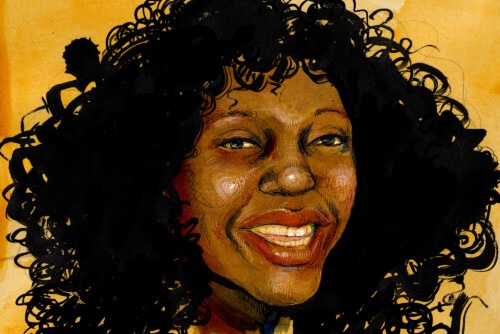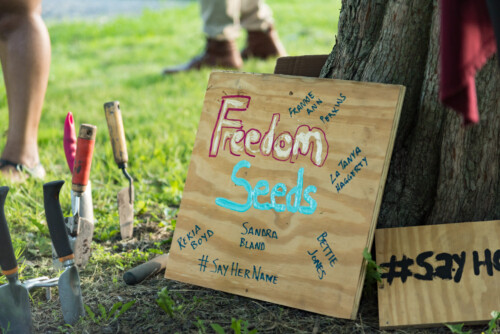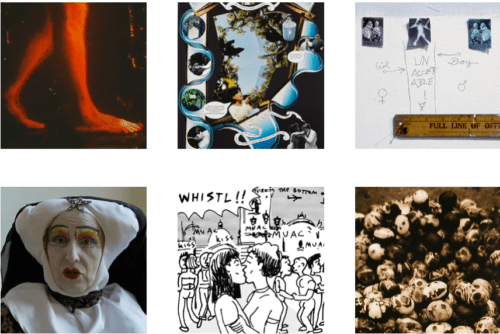A response to the panel “Campus Activism” at the conference Activism and the Academy: Celebrating 40 Years of Feminist Scholarship and Action. Watch the video here:
The student is not home, out of time, out of place, without credit, in bad debt. The student is a bad debtor threatened with credit. The student runs from credit. Credit pursues the student, offering to match credit for debt until enough debts and enough credits have piled up. But the student has a habit, a bad habit. She studies. She studies but she does not learn. If she learned, they could measure her progress, confirm her attributes, give her credit. But the student keeps studying, keeps planning to study, keeps running to study, keeps studying a plan, keeps building a debt. The student does not intend to pay… .
We went to the public hospital but it was private, and we went through the door marked “private” to the nurses’ coffee room, and it was public. We went to the public university but it was private, and we went to the campus barbershop, and it was public. We went into the hospital, into the university, into the library, into the park.
—Fred Moten and Stefano Harney 1
We are in the neighborhoods that our campuses are gentrifying. We are in our positions, our places in the rigid hierarchies inside the institutions. We are in our identities; experiencing differential risk and credit; being accorded expertise or being told that we are overreacting, emotional, or self-interested as people interpret and project our positions in hierarchies of race, nation, ability, gender, sexuality, age, and class. We are inside buildings and departments that are maintained or neglected, prioritized or abandoned. We are inside budgets. We are inside bodies that eat on or off campus, that leave traces on carpets and sinks and floors and toilets and trashcans that must be cleaned by someone. We are inside mythologies about responsibility and social mobility and the power of a degree or a certificate. We are inside national narratives about charismatic individuals changing the world, usually by starting a business. We are surrounded by furniture built by prisoners. We are across the street from a Starbucks. We are one building away from the Military Sciences Department. We are on the university website portraying the school’s commitment to social justice.
The campus is simultaneously full of promise and an antiliberatory and stagnant space. The stakes on campus are high, and the field is as ripe for contestation. Labor exploitation and the targeting of people of color, women, and feminist and antiracist scholarship and teaching increase as budgets shrink. Unsavory connections between the world of finance and the decisions of our university administrations cry out to be exposed. Campus-community partnerships to build new jails for kids and adults, to destroy low-income housing and develop condominiums, and to put credit cards in the pockets of students all require urgent, immediate action. Beautiful moments of opening and shifting happen during classroom conversations. Student and nonstudent workers fight together for a union for food workers. People inside and outside the university come together to resist attacks on a teacher who has put critiques of Israeli colonialism and apartheid on the syllabus. There is possibility.
There are obstacles, new and old. My students are graduating with hundreds of thousands of dollars of debt in a world where less than half of them will be able to find jobs that require the degree they have just earned—and that is any job, not the job they wanted, but any temp job or corporate job that requires this degree. The debt load socializes them, disciplines them, tells them that there is no time for campus activism, that they must keep their heads down and work relentlessly, hoping to be among the few who get the desirable jobs. And they discipline the professors—they do not have time for this critical stuff, they just want skills for the job market, that is what they are paying for. They were lied to. They were told this was a good decision for their future, an obvious improvement for them and their families. This was supposed to help them class up and change the world, but now they are reviewing documents in a windowless room with other temps or back serving coffee at Starbucks.
They are probably not paying their debt, or are not going to, and the amount of unpaid debt that accumulates is going to change how many of these loans are available, whether schools can stay open. Already, they are being rejected for types of loans that were readily available recently. And so the department considers shrinking class sizes, which means fewer tuition dollars, so cuts must be made. Programs focused on indigenous people must go first, of course. Then we will line up gender and ethnic studies programs, support staff who focus on students of color and students with disabilities. Mostly, women of color will have to be let go.
In this setting, how do we maximize the opportunities for campus resistance that most deeply link to broader struggles against white supremacy, colonialism, capitalism, heteropatriarchy, and ableism, and that capture the imagination and energies of students and give them opportunities to develop skills and understandings to ground lifelong, transformative work. How do we recognize and pass up the reform efforts that are labor-intensive, co-opting, and irrelevant or minimally relevant beyond the walls of the institution? It can’t be right to ignore any of the injustices on campus, especially if we are protected from their impact by our position in the hierarchy. But will this drive to intervene lead to becoming an administrator or a micromanager of the numerous injustices of a corrupt institution? The campus is a site of all the harmful systems of meaning and control that we are working to transform across the city and the world, and it is also an institutional actor in these systems. Its particular urgency is visible in the battle over ethnic studies in Arizona; the budget struggles of the University of California; the decisions to let the military on campus because gays and lesbians are now allowed to join the murderous, imperial pursuits of the United States as soldiers; in campus struggles for divestment from Israeli apartheid; and in universities across the country where people labor in food and janitorial services without living wages or health care. We are experimenting, as always, walking the tightrope, guessing about what to do or not do next.
- Fred Moten and Stefano Harney, “Debt and Study,” e-flux journal 14 (2010).[↑]



